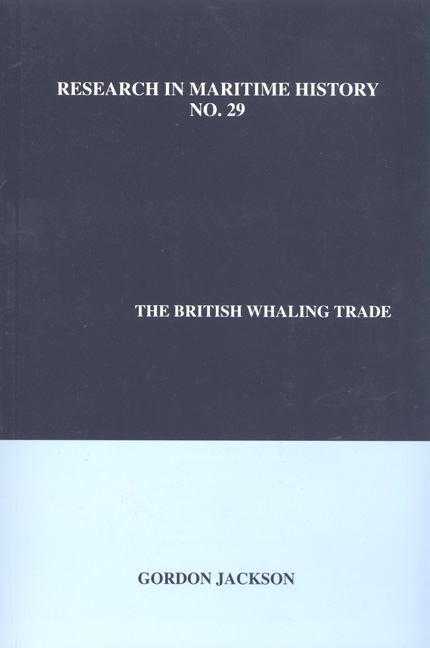Book contents
- Frontmatter
- Dedication
- Contents
- List of Tables in the Text
- List of Appendices
- New Introduction
- Preface
- Part One The Traditional Whaling Trades, 1604-1914
- Part Two The Modern Whaling Trade, 1904-1963
- Chapter 9 New Whaling Techniques
- Chapter 10 New Whaling Areas
- Chapter 11 Advances in Oil Technology
- Chapter 12 Expanding Fleets and the New Fishing Grounds, 1919-1920
- Chapter 13 Crisis and Contraction, 1929-1932
- Chapter 14 Regulated Recklessness, 1932-1939
- Chapter 15 The Final Fling, 1945-1963
- Conclusion
- Appendices
- Select Bibliography
- Additional Bibliography
- Index
Chapter 15 - The Final Fling, 1945-1963
from Part Two - The Modern Whaling Trade, 1904-1963
- Frontmatter
- Dedication
- Contents
- List of Tables in the Text
- List of Appendices
- New Introduction
- Preface
- Part One The Traditional Whaling Trades, 1604-1914
- Part Two The Modern Whaling Trade, 1904-1963
- Chapter 9 New Whaling Techniques
- Chapter 10 New Whaling Areas
- Chapter 11 Advances in Oil Technology
- Chapter 12 Expanding Fleets and the New Fishing Grounds, 1919-1920
- Chapter 13 Crisis and Contraction, 1929-1932
- Chapter 14 Regulated Recklessness, 1932-1939
- Chapter 15 The Final Fling, 1945-1963
- Conclusion
- Appendices
- Select Bibliography
- Additional Bibliography
- Index
Summary
The Second World War had a devastating effect on whaling. The European market was soon occupied by Germany; many British whale-catchers were requisitioned for war purposes; and the factories and associated vessels were to be used at the discretion of the Ministry of Food, though the precise relationship between the Ministry and the owners was not yet defined. It took some time, however, for the full effects of war to be felt.
Although war began as the fleets were preparing for sea, they were, after hasty consultations, allowed to proceed normally. The result was that instead of the shortage of oil that might be expected in wartime, there was a greater “surplus” than there had been in the over-production days of peacetime competition. The British government had been stockpiling oil since 1938, and to the 130,000 tons brought home by the British fleets in 1939/1940 was added 90,000 tons which the government bought from Norway and 60,000 tons bought from Japan. There was nowhere to store all the oil on land - it was in any case being dispersed to the West Country - and there was no adequate plant for hardening it in the foreseeable future now that the De-No-Fa factory could not be used. In these circumstances there were doubts if whaling was likely to be a paying proposition for many years to come, and the Ministry of Food, in making a careful appraisal of the country's needs, decided that whaling would be unnecessary in the 1940/1941 season. Nevertheless the government recognised - as prewar owners had recognised - that the trade had to continue if the British owners were not to collapse in favour of the Norwegians, who were still active. The question then arose: who should bear the loss; the companies burdened with heavy “war” costs to catch oil they could not sell, or the government which did not want the oil now but would no doubt want some in the following season?
In March 1940 Salvesen announced that they intended going out in 1940/1941 at their own risk in order to keep their operations ticking over, but neither United Whalers and the other independent producers nor Unilever were prepared to do so because of the increasing likelihood of a glut of oil in Britain should the war last longer than a year.
- Type
- Chapter
- Information
- The British Whaling Trade , pp. 211 - 224Publisher: Liverpool University PressPrint publication year: 2004



